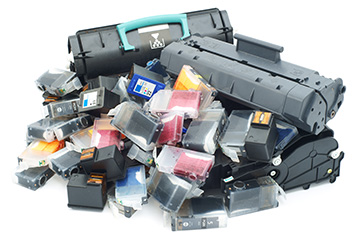Statewide Term Contracts
NC Department of Administration – Purchase and Contracts Division
State Agency Guidelines
All state agencies are required to follow specific procur ement and contracting steps in chronological order, depending on the facts and circumstances of each procurement or contract need. State agencies are required to first use items provided by Correction Enterprises per the § 148-134, regardless of whether the prices of products are less expensive if purchased elsewhere:
ement and contracting steps in chronological order, depending on the facts and circumstances of each procurement or contract need. State agencies are required to first use items provided by Correction Enterprises per the § 148-134, regardless of whether the prices of products are less expensive if purchased elsewhere:
“Preference for Division of Adult Correction of the Department of Public Safety product. All departments, institutions, and agencies of this State that are supported in whole or in part by the State shall give preference to Correction Enterprises products in purchasing articles, products, and commodities that these departments, institutions, and agencies require and that are manufactured or produced within the State prison system and offered for sale to them by Correction Enterprises.”
Next, state agencies are required to use mandatory statewide term contracts to determine if the needed products are available via those pre-negotiated agreements. Convenience statewide term contracts are provided for state agencies to use at their discretion for many other common business needs, to expedite the procurement process so that the individual agency is not forced to competitively solicit for commonly used goods and services. Statewide term contracts are available to local governments and the list of all non-IT statewide term contracts can be found here: https://ncadmin.nc.gov/government-agencies/procurement/statewide-term-contracts.
In addition to the above requirements, State agencies must also adhere to the conditions set forth in Executive Order 143 (EO143), which directs state agencies to enhance and improve participation by Historically Underutilized Businesses (HUB) in goods and services contracting opportunities.
For contracts below the agency’s delegation, a monthly report of all awards must be submitted to the Department of Administration Secretary that includes the transaction number, commodity code, contract amount, awarded vendor, awarded vendor HUB status (Small HUB, HUB, None). If the awarded vendor HUB status is None, then the list of HUB vendors that submitted bids and justification to explain why the HUB vendor was not awarded the contract must be submitted. If there are no HUBs in the bid packet, then those awards must be approved by the Secretary of Administration prior to award.
For contracts above the agency’s delegation, a detailed explanation must be submitted in the Recommendation for Award to justify that decision. If the award recommendation is for a non-HUB vendor, a justification must be provided to support that decision. Each bid received must have at least one HUB vendor in the packet. If after bid opening, it is discovered that no HUB vendors submitted bids, then the contract award cannot be certified by State Purchasing and Contracting until after approval by the Secretary of Administration.
Statewide Contracts that Include Recycled Content Products
The N.C. Department of Administration promotes the purchase and use of sustainable, efficient supplies and products. As part of this effort, the department seeks products that have recycled content. The following is a list of all current contracts with recycled content. For more information, visit the Division of Purchase and Contract’s website at: https://ncadmin.nc.gov/about-doa/divisions/purchase-contract
▪ Correction Enterprise Products, 001A - Oils, Lubricants, Greases, and Antifreeze – Correction Enterprise offers synthetic, bio-degradable and rerefined (recycled) lubricant choices. https://ncadmin.nc.gov/001a
▪ Filters, Air (HVAC), 031B – Extended-surface and electrostatically-enhanced filter offerings result in lower HVAC pressure drop, resulting in less energy use. Extended-surface filters also last much longer than traditional panel filters. https://ncadmin.nc.gov/031a
▪ Automotive, Industrial Parts and Supplies, 060A - Some products included have recycled materials with 10 percent-20 percent post-consumer content. https://ncadmin.nc.gov/060a
▪ Batteries, Storage, 060B - Typical lead-acid batteries contain 60 - 80% recycled lead and plastic, according to the EPA. Battery cores (spent batteries) are considered an environmental hazard (G.S. 130A309.70 prohibits the landfilling or incineration of lead-acid batteries) and are otherwise expensive to properly remove. All State agencies are required to dispose of battery cores under a separate battery recycle contract (LAB082714) administered by the State Surplus Property Agency. https://ncadmin.nc.gov/060b
▪ 2017 Vehicles, 070A – Per the Steel Recycling Institute, 60% of a typical vehicle is steel or iron. Of that steel or iron, 25% of the shell of a vehicle is recycled material. Nearly 100% of the steel and iron of a retired vehicle is recycled. The current contract focuses on providing fuel-efficient vehicles, while also reducing fossil-fuel reliance through alternative fuels (E85 ethanol flex-fuel, CNG compressed natural gas, LPG liquefied petroleum gas (propane), AFV gasoline/electric hybrids, all-electric, B20 biodiesel), and meeting strict emissions standards. https://ncadmin.nc.gov/070a
▪ Carpet, 360A – Recycled or recyclable content is required by the carpet covered within the nylon carpet specification. https://ncadmin.nc.gov/360a
▪ Furniture, All Types, 420A - Contractors support sustainability through different practices. Mechanical parts can be recycled or replaced, thereby extending service of the item. Packaging is recyclable. Wood may be ground up into particleboard. Packaging may contain from 15 -75% post-consumer waste and is reusable. Wood, plastic and metal contain recycled post-consumer content and are recyclable. Product offerings are using more sustainable methods because they offer a competitive price advantage compared to those who use all virgin materials. Soy foam in chair seats and backs is now becoming available and is more environmentally friendly because it is made partly from soybeans, a renewable resource. https://ncadmin.nc.gov/420a
▪ Maintenance, Repair & Operation Supplies, 445B – Items which were offered under the following contracts are now covered under this contract: Ballasts (285B), Dry Cell Batteries (450A), Energy Saving Devices (285D), LED Lighting (285C). Lamps may contain up to 65% recycled content, including glass and mercury. Lamp packaging that may contain 73% recycled content. Some of the lamps are low mercury (TCLP compliant), non-hazardous. Low-flow plumbing fixtures are offered to reduce water consumption. https://ncadmin.nc.gov/445b
Ballasts – Electronic types are available that are up to 30% more energy efficient, last longer, support variable illumination and reduce electromagnetic radiation compared to the older magnetic ones. Electronic ballasts contain no PCBs and can be disposed in the trash. Reduced product shape and size (form factor) also minimizes packaging and metal enclosure requirements.
LED Lighting – Contract consists of lamps for cove lighting, area lighting, downlights, troffers and wall packs employing LED illumination for energy savings. Packaging is 60% recycled materials. LED illumination uses 80% less energy than incandescent bulbs and lasts up to 25 times longer.
Energy Saving Devices – Contract includes T8 size tubular fluorescent retrofit kits, LED exit signs, LED exit sign retrofit kits, occupancy/vacancy sensors, electronic dimmable ballasts, and controls. Products use LED illumination and dimmable ballasts for energy savings. T8 fluorescent lighting provides higher energy efficiency and less heat generation than older T12 lighting.
▪ Locks, Locking Devices & Accessories, 450B – Product metal content includes 26-31% pre-consumer recycled materials and 4-6 percent post-consumer recycled materials. Some models support the material and resources credits for Leadership in Energy and Environmental Design (LEED) building certifications. https://ncadmin.nc.gov/450b
▪ Grounds Maintenance Equipment, 515B – Contract includes, walk behind products/equipment, mowers and lawn and garden tractors, hand-held equipment, tractors, utility vehicles, golf and turf equipment, and other equipment. This equipment typically contains 20% recycled steel and plastic. https://ncadmin.nc.gov/515b
▪ Traffic control Devices, 550A – Traffic cones have UV stabilizers to provide longer life. Pavement marking materials contain 60% recycled content, and 29% of the components are rapidly renewable resources (such as pine trees, sunflowers, cotton and soybeans). https://ncadmin.nc.gov/550a
▪ Office Supplies, 615A - Contractors are required to the extent feasible and practical, to offer recycled products, including packaging, especially those having post-consumer waste content. Wherever possible and practical, these products should be identified with their recycled content. https://ncadmin.nc.gov/615a
▪ Remanufactured Toner Cartridges, 615A – NC law (G.S. 130A-309.14) requires purchase and use of remanufactured toner cartridges to the extent practicable. All spent to ner cartridges under this contract are to be collected by the vendor during regular office supply deliveries, and complimentary recycle bins are available. https://ncadmin.nc.gov/615a
ner cartridges under this contract are to be collected by the vendor during regular office supply deliveries, and complimentary recycle bins are available. https://ncadmin.nc.gov/615a
▪ Napkins, Bathroom Tissue, Paper Towels and Toilet Seat Covers, 640A – All products on the contract are manufactured from 100% recycled fiber, with post-consumer content meeting or exceeding EPA Comprehensive Procure Guideline (CPG) standards. All products are also manufactured using either elemental chlorine-free or chlorine-free systems. All bathroom tissue and some paper towels are certified to the Green Seal GS-1 environmental standard. https://ncadmin.nc.gov/640a
▪ Office Paper, 645A – Pursuant to NC law (G.S. 143-58.3), all available paper types on this contract offer 30% post-consumer content choices, compliant with the EPA’s Comprehensive Procurement Guidelines (CPG). https://ncadmin.nc.gov/645a
▪ Bags, Plastic, Trash, 665B - Liners contain a minimum of 10% post-consumer or pre-consumer reprocessed copolymer. High-density material options are offered that utilize up to 70% less plastic than the same strength low-density material. All the liners awarded were thoroughly evaluated for strength and performance. https://ncadmin.nc.gov/665b
▪ Tires and Tubes, 863A – Tire manufacturers are actively committed to improving sustainability for their products. For instance, low rolling resistance tires are available that improve fuel efficiency (Firestone Fuel Fighter, Bridgestone Ecopia, Michelin Energy Saver, for example). Longer treadwear warranties are available, such as Bridgestone Alenza at up to 80,000 miles and Michelin Defender at 90,000 miles. Recycled rubber content in new tires used to not exceed 2%, but Bridgestone Ecopia has 5% recycled content in the treads. While that recycled content sounds small, the annual volume of tires is so large that if all tires went to 5% recycled crumb rubber content, the market for recycled crumb rubber in new tires would exceed 150 million pounds annually. The tire industry is aggressively investigating technology to allow higher rubber reuse, without increasing rolling resistant (and thereby hurting fuel efficiency). https://ncadmin.nc.gov/863a